Is Soft Water Safe To Drink?

Every home has a water hardness level. Some places will have hard water and others will have soft water. Hard water is prevalent in the United States, and you can read about its benefits and downsides in my post Is Hard Water Safe To Drink?. Because of the prevalence of hard water, many homes are equipped with water softeners that remove some of the minerals and add salt to soften the water.
Indeed, soft water reduces soap scum on clothes and dishes, makes cleaning products more effective, decreases mineral build-up on pipes and appliances, and leaves skin soft after washing. Though there are many cleaning and maintenance benefits of water softening, the question remains: Is it safe to drink? In this post, you will find my opinion on this question.
Is Soft Water Safe To Drink?
The water that is naturally soft is okay to drink. However, it lacks beneficial minerals, such as calcium and magnesium.
As for the water that underwent the softening process involving a salt-based water softener, its safety will depend on several factors addressed below. Personally, I choose not to drink soft water produced by a salt-based water softener due to the following factors:
- sodium content
- potential contaminants from salt
- mineral deficiencies, and
- taste and palatability.
Sodium Content
One concern with soft water is the increased sodium levels. The ion exchange process replaces calcium and magnesium with sodium ions. While the amount of sodium is generally higher in softened water, it is still relatively low and within acceptable limits for most people. However, if you are on a low-sodium diet or have specific health conditions, you should consult your healthcare provider before consuming softened water. Generally speaking, too much sodium in the body has the potential to cause fluid retention, swelling, bloating, high blood pressure, kidney problems, and more.
Potential Contaminants From Salt
Salt is known to contain industrial contaminants such as mercury, lead, and cadmium. That’s why for cooking and eating, I use the safest table salt I could find. It is from Iceland – a relatively clean place on the planet. Of course, it is cost prohibitive to use this salt from Iceland in a water softener because you need pounds, not ounces. And in my experience, it is very challenging to get 3rd party test reports from salt manufacturers to choose toxin-free salt. By the way, you can test your softened water to make sure that there are no heavy metals. Tap Score is my favorite place for water testing.
Despite challenges associated with obtaining information from some manufacturers, I encourage you to keep asking questions of manufacturers because you are planting the seeds of positive changes. And I have witnessed many positive changes in the marketplace!
Mineral Deficiencies
Softened water, due to the removal of calcium and magnesium, can contribute to a slight decrease in essential mineral intake. However, the impact on overall mineral intake from drinking soft water is typically minimal. A well-balanced diet rich in fruits, vegetables, nuts, and other mineral-rich foods can easily compensate for that. In my case, I highly appreciate magnesium in my drinking water because I was tested for magnesium deficiency despite eating magnesium-rich foods.
So, I believe that having dissolved magnesium that is easier to absorb from water is very helpful for my body. To keep calcium and magnesium in our drinking water was one of the reasons we chose a Pure Effect Water Filter; however, I can’t guarantee that it will reduce all the contaminants found in your water. That’s why I recommend my clients contact Clean Water Revival to get a quote from them on the water filtration system that will work on the contaminants specific to their drinking water.
Taste And Palatability
Soft water is often described as having a slightly different taste compared to hard water. Some people prefer the taste of soft water, while others find it less appealing. Taste preferences are subjective, and it’s important to ensure that the water you drink is palatable and free from any unpleasant odors or tastes. If you don’t like the taste, it will deter you from drinking water, which is not good for your health.
Ideally, you can set up your water softener to bypass the kitchen sink, where you presumably obtain your drinking water. That way you get the benefits of both forms of water. However, if this is not possible due to the design of your house, I recommend installing a reverse osmosis water filtration system that can remove the sodium chloride from the water.

Is It Safe To Drink Soft Water While Pregnant?
I Read Labels For You is here to provide you with the information to make your own decisions. Studies show that high-salt diets during pregnancy can increase the risk of health problems for unborn babies. Figure out how much salt your water softener adds and see if you are comfortable with that. Consult with your doctor before making a final decision.
Is Soft Water Safe For Pets To Drink?
According to the Pet Poison Helpline, salt is toxic for dogs and cats. I think it is best for you to consult with your veterinarian to figure out whether the amount of sodium added by your water softener is okay for your pets.
Benefits Of Soft Water
We chose to install a salt-based water softener due to many benefits it provides, including:
- Reduced mineral build ups in pipes, appliances, washing machines, and water fixtures. Without the mineral buildup that hard water causes, your appliances will operate more efficiently and last longer.
- With soft water, you will have cleaner glasses and dishes. It will prevent the formation of spots and streaks on your dishes when you use a dishwasher to clean them.
- With soft water, you don’t need to use harsh and potentially toxic dishwasher detergents, laundry detergents, shampoos, and other cleaning and personal care products. Your washing machines will work well with any detergents.
- Soft water is gentle on your skin and hair. When we had extremely hard water, my hair was falling out in chunks. (Yikes!) The first time I washed my hair with softened water, not even one hair fell out. I barely use any body lotions anymore as my skin is not dry, and my hair is strong and shiny now.
Side Effects Of Drinking Soft Water
To clarify, these are potential side effects of drinking softened water, not the water that is naturally soft. But again, you should do your own calculations to see what constitutes “excess sodium intake” for you.
- Difficulty staying hydrated due to poor taste
- Fewer health benefits due to lack of minerals
- Potential health issues from excess sodium intake:
- Gastrointestinal discomfort
- Cardiovascular problems including high blood pressure
- Kidney problems
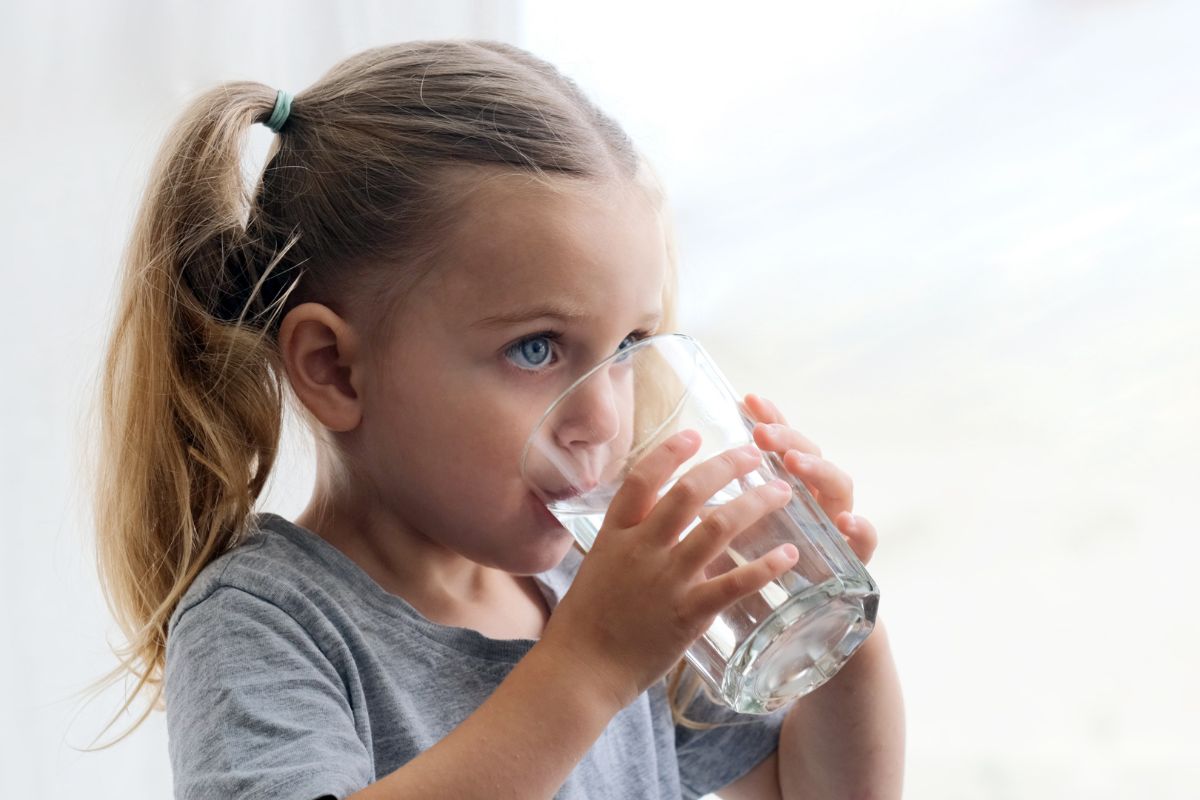
What Is The Difference Between Hard And Soft Water?
Water hardness refers to the amount of dissolved calcium, magnesium, and other minerals in water. If you get water testing done, and your home’s water is below 60 mg/L (below 3.5 grains per gallon) of calcium carbonate, it is considered soft. Anything above that is hard water. This has nothing to do with the overall water quality, it simply determines the type of water you are dealing with.
Furthermore, most of the USA has hard water. When you encounter soft water, it is usually due to an installed water softener.
How To Make Softened Water Drinkable
Reverse Osmosis Water Treatment
Reverse Osmosis (RO) kitchen systems use water pressure to break up ion membranes and remove numerous contaminants including sodium that is added by a water softener. You can install a RO in the kitchen. Therefore, after the softened water has gone through the RO, it won’t have added sodium anymore. For a good-quality RO system, contact the Clean Water Revival team of experts.
Don’t Drink Softened Water
There are ways to install a water softener that will bypass your drinking water faucet. If your house design doesn’t allow that, consider installing a water softener on your hot water line only. It is a good idea to contact the experienced Clean Water Revival team for help to figure out your water softening and filtration needs suitable for the chemistry of your water and contaminants in your drinking water.
Conclusion About The Safety Of Drinking Soft Water
Soft Water Is Generally Safe To Drink, However, It Is Better For You To Drink Hard Water.
I think the decision to install a water softener is a good one. When your home’s water is free of minerals, it is easier on your appliances, skin, hair, and pipes. However, you should consider setting up your softener to bypass your drinking water to get optimal health benefits from your tap. Importantly, whether you have soft or hard water, it’s a great idea to filter your drinking water to achieve optimal health. To learn more about filtration options, visit the Best Water Filter System For You post.
You can find many non-toxic products vetted for safety in the shop section of my website. You’ll find a lot of helpful information in the blog posts devoted to hard water, alkaline water, bottled water, boiling water, and spring water. And you can find all your healthy living tips here at I Read Labels For You.
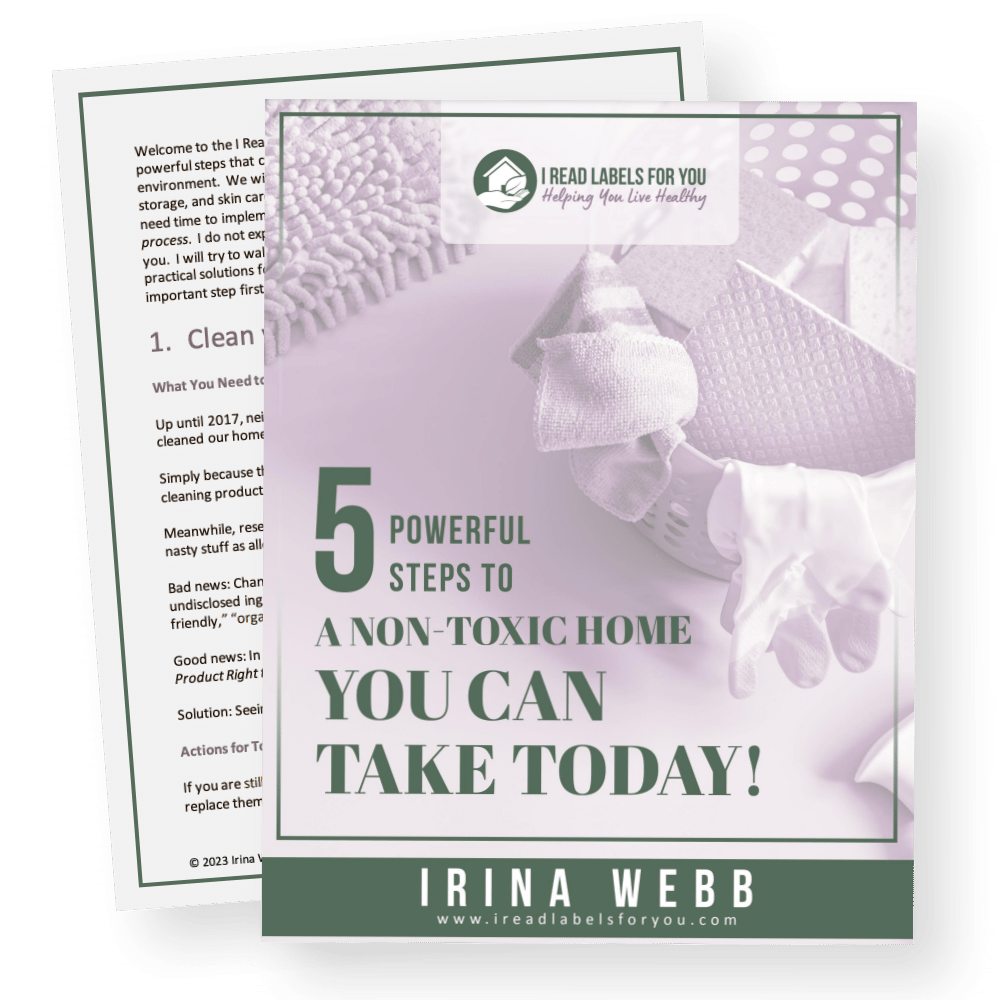
Download The Free Guide!
5 Powerful Steps To A Non-Toxic Home
Join our informed consumer community and get our free guide the “5 Powerful Steps To A Non-Toxic Home”.

 Written by
Written by 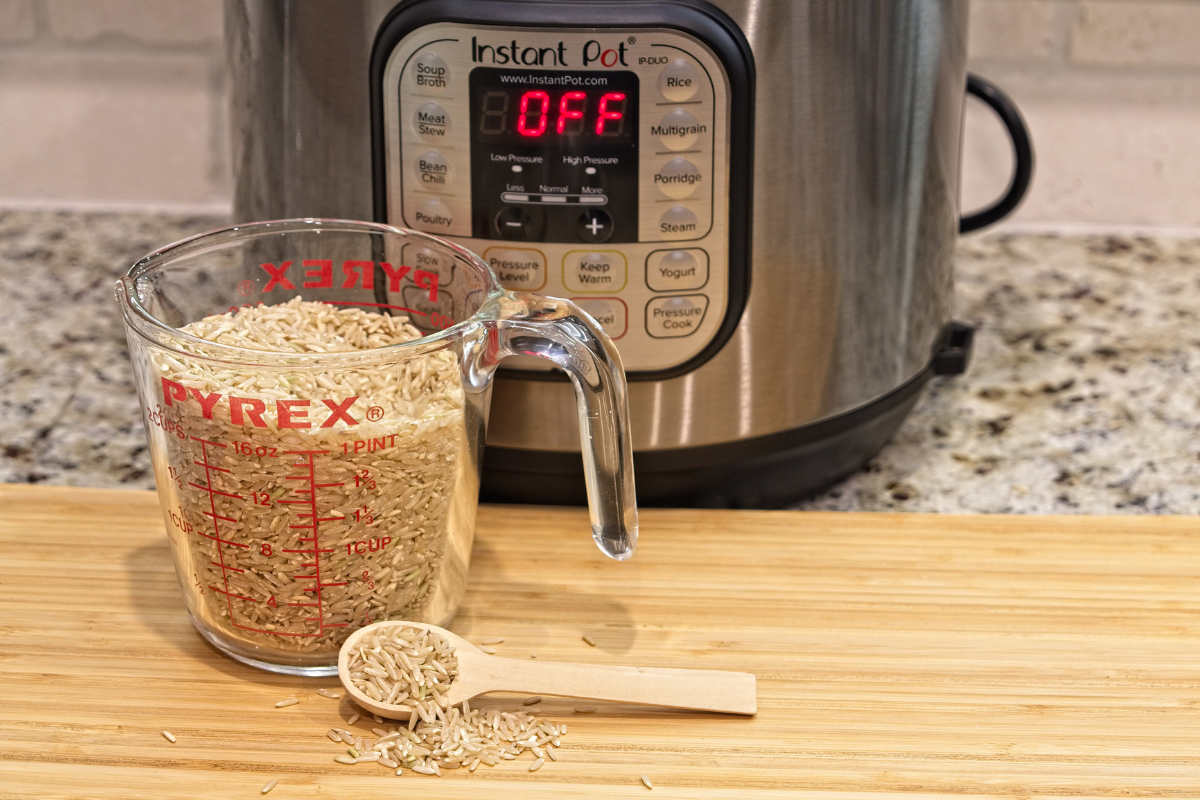
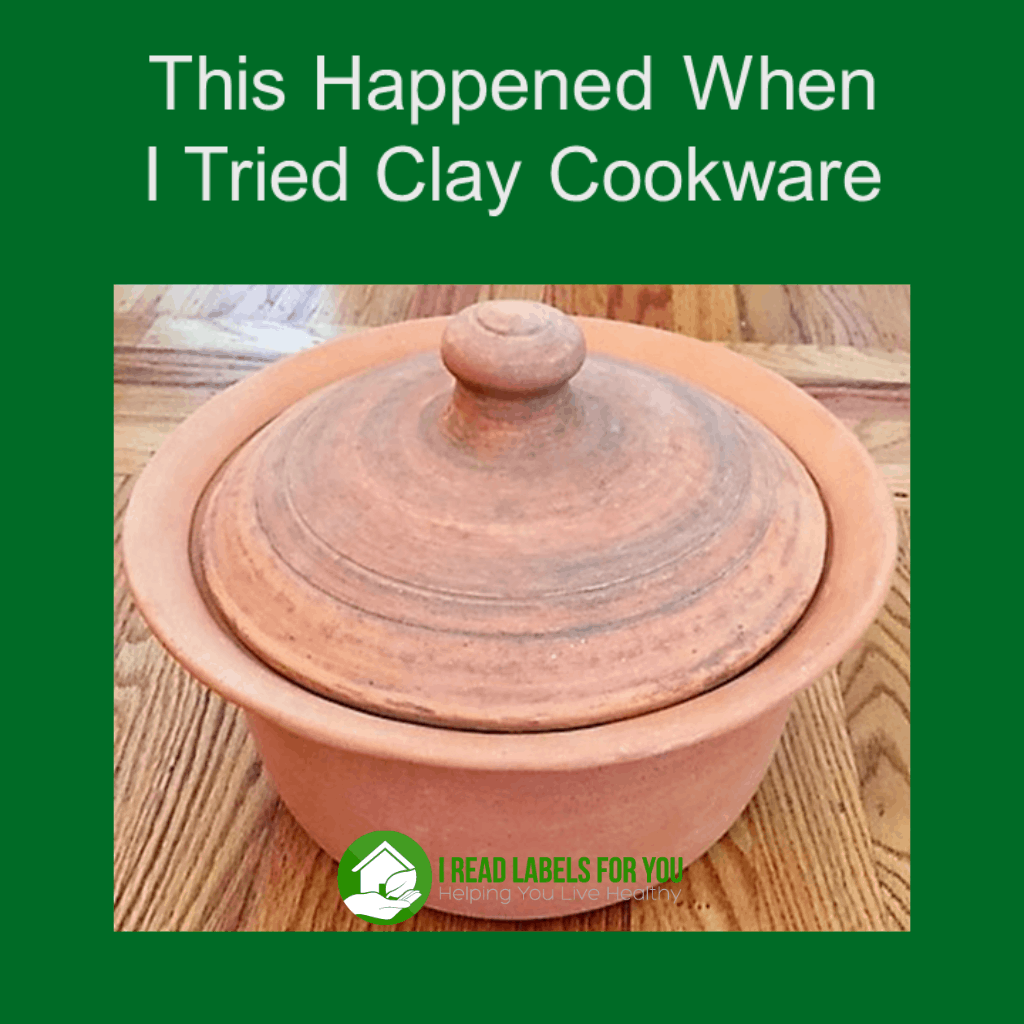
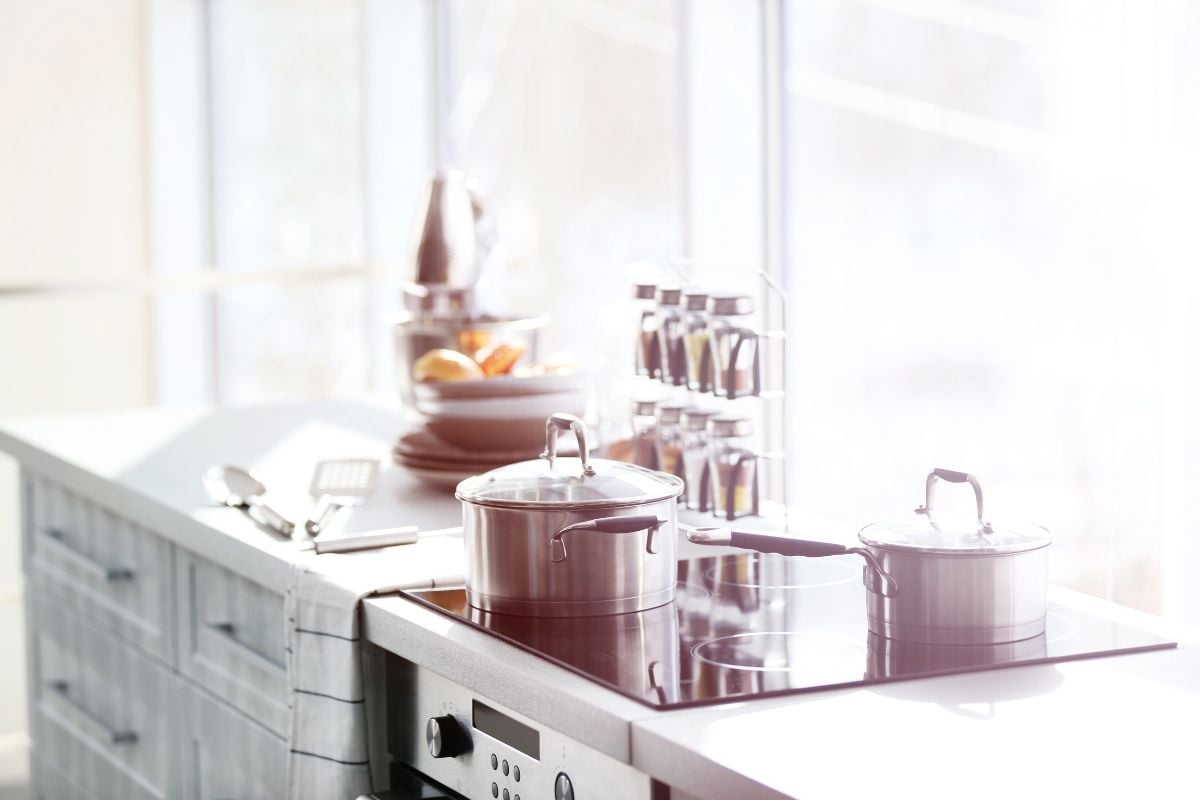
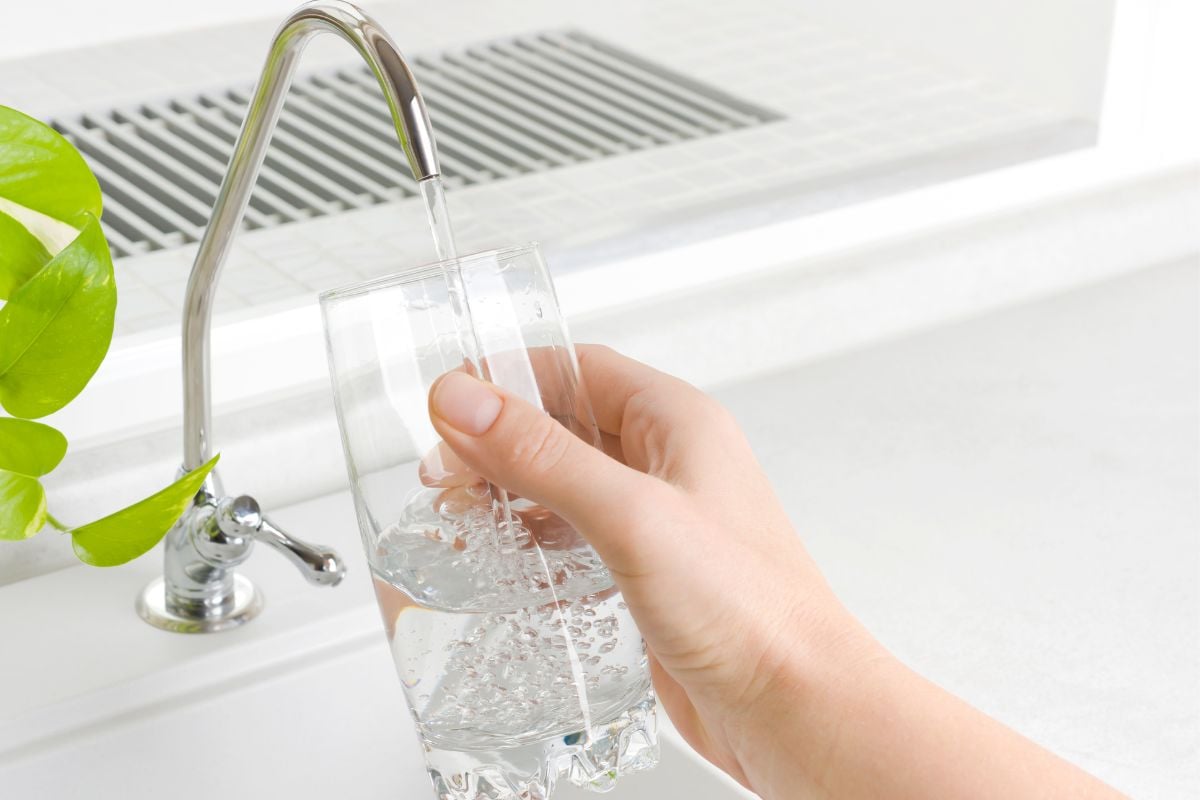


Before commenting, please read our Comment Policy.